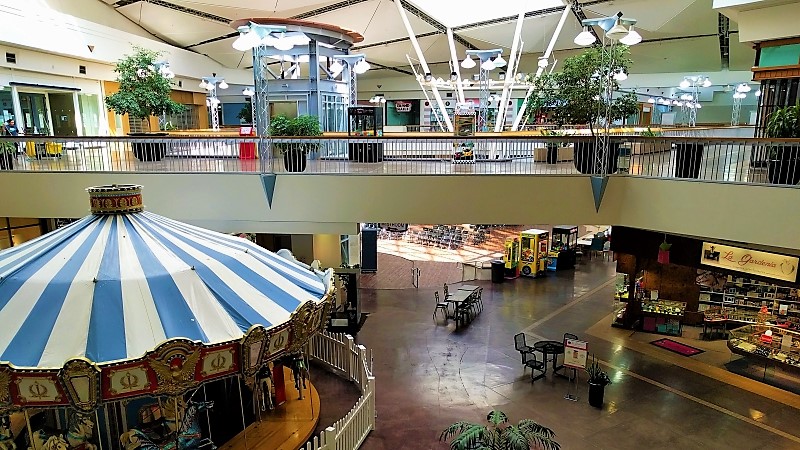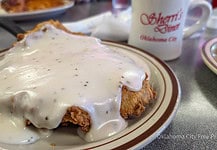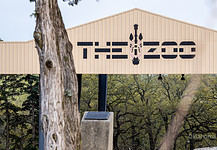Last Updated on December 12, 2017, 8:09 AM | Published: December 11, 2017
Plaza Mayor was supposed to be the rebranding that would bring the old Crossroads Mall property back from the dead.
But the property died a second death Oct. 31 when principal owners Roddy Bates and Michael Dillard closed the retail operation of the mall mere weeks before the busiest shopping season of any year.
As reported in our earlier story, the owners gave merchants one month to relocate with only weeks to go before the busiest part of the retail year.
For some small operators, Christmas sales either make or break their entire business year.
And according to Robert Ruiz, who was the marketing manager from inception in 2013 until the end of 2015, the failure could have been avoided.
Rebranding
The rebranded mall opened winter of 2013 under the guidance of experienced Hispanic marketer Robert Ruiz.
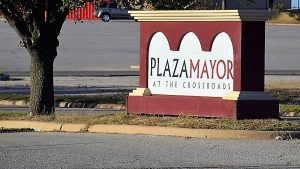
The news was met with curiosity by the city’s Anglo population and excitement by the burgeoning Hispanic population that had started to spill over from the south side of OKC to parts of Moore.
When the property was purchased in 2011, The Oklahoman identified Roddy Bates and Mike Dillard as owners of Raptor Properties LLC, and that entity as the purchaser.
But property records show that CRM Properties LLC purchased the property from the federal government who were owners after the disastrous 2008 economic crash.
CRM Properties has the same mailing address as Raptor Properties LLC and CRM Media Management LLC as listed on Oklahoma Secretary of State incorporation records.
Mall merchants and those who had contact with management staff identified Bates and Dillard as the owners quoted to them when decisions were made for the mall.
Hopes
Videos and reports from the opening in April, 2013 show that city leaders, owners and several of the first Hispanic merchants to enter the new project thought it was a good concept, since they were aware of the success of La Gran Plaza, a Hispanic-themed conversion of the once-dead Seminary South mall in Fort Worth, Texas.
Victor Leal, who has been featured in our earlier report about surviving the closing of Plaza Mayor, was one of them.
As a freelancer in 2015, this reporter wrote a story for Oklahoma Gazette about José de Jesús Legaspi and his concepts of mall conversions being applied to Plaza Mayor.
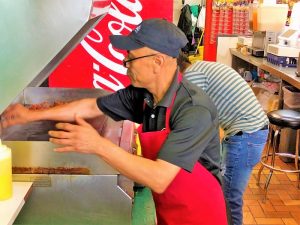
Legaspi emphasized that the “American dream” for Hispanics is not just to come to the U.S. It’s to own property and achieve economic independence through business ownership.
He became the face of the project for a while although differing statements from Legaspi and others over time have caused questions to linger as to whether he was a partner, investor or just consultant.
An interesting quote makes his departure from the project even more interesting.
“We don’t buy malls or run malls on the basis that we are going to get it, build it up and then sell it now. We’re hoping that we can run it for five, 10, 20 years from now,” Legaspi said in the 2015 Gazette story. “And that’s a long-term investment. It’s not easy. It takes a lot of time, a lot of effort, a lot of money to make it happen.”
Early Success
It was during that 2015 visit that this reporter learned about some of the signs of success.
Kristi Cole, mall manager, said the Victoria’s Secret store had won an award within the company the year before for having the best rate of growth of any store in the chain.
Dillard and Bates had purchased the former Dillard’s after their mall purchase.
Per Legaspi’s and Ruiz’s concept, it was transformed into El Parian, an incubator for retail business startups.
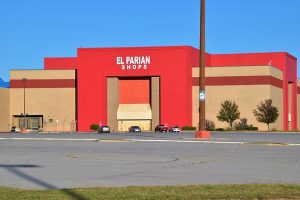
“I worked up a 67-page plan for developing that incubator,” Ruiz told Free Press. “It was the only certified one in the state. But that plan was never implemented.”
Legaspi came through Oklahoma City about once per month and then, eventually the visits stopped about a year ago according to sources who were used to seeing him there.
Robert Ruiz was the Hispanic marketer doing the heavy lifting of developing relationships and connecting culture with the mall day-to-day.
And it started paying off.
One month later Oklahoma Gazette reported the opening of a new Integris Clinic in Plaza Mayor.
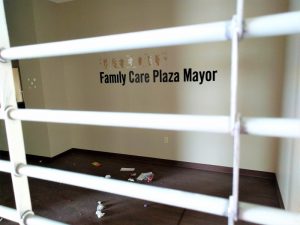
All of the staff there spoke Spanish and a festive ribbon-cutting marked what seemed to be further advancement of the mall becoming a cultural and public services center, too.
As marketing to Hispanic culture began to wind down quickly after Ruiz left his position, so did the Hispanic cultural events that had drawn the crowds.
Eventually, Integris quietly pulled out.
What happened?
Ruiz was willing to go on camera and explain some of his history with the Plaza Mayor project. He was also not shy about assessing what went wrong about the execution of the Plaza Mayor idea.
This interview took place Oct. 31, the last day Plaza Mayor was open to the public. Here, he explains his involvement from the beginning.
In this video, Ruiz talks about what he perceived to be relationship failures of management and owners, especially by not treating the merchants as partners. We also ask him what he felt on the last day of such a big project he had put so much into.
David Castillo, president/ceo of the Greater OKC Hispanic Chamber of Commerce expressed concern that city leaders would conclude that the concept didn’t work.
“I think they fell short of what they promised,” Castillo told Free Press. “The only bright spot is that those businesses may land back on SW 29th or Calle dos Cinco.”
Tested concept
The concept was to take the defunct Crossroads Mall that had lost all its anchor stores and eventually all but about 17 percent of its tenants, and rebrand the space as a retail and cultural center for Hispanics across the state.
Most importantly, there would be a business incubator where the smallest startup retail business could start with very little investment and be cultivated to the point where they could move out into the main mall.
Legaspi had success with that model in his home state of California and then began to spread the concept across the country, one of those places being La Gran Plaza.
Some Latinos in OKC had either been to La Gran Plaza or had relatives who had been and talked proudly of what a great place it was not just for shopping, but as a cultural center.
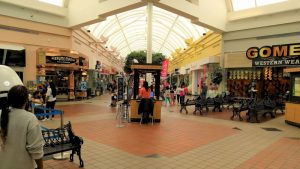
This reporter visited La Gran Plaza in November and found it to be a thriving place.
Where Plaza Mayor owners and managers grew impatient with the business incubator and abandoned it, Mercado at La Gran Plaza was teeming with activity.
And the plan of growing businesses out into the mall was working. We counted only three spaces in the entire mall unoccupied.
Restrooms had been upgraded.
A large rest area provided comfortable furniture for those who had traveled a long distance.
The plan was to repeat that success at Plaza Mayor.
And up through 2015 it showed signs that the plan was working.
But that began to draw to a close when Ruiz left his marketing position and became the executive director of the new Scissortail community development corporation.
“Robert is our hero,” Victor Leal told Free Press in early October. “When Robert [Ruiz] left his position, it started going way down.”
Open invitation
We went to each owner’s office to give an opportunity to respond or to arrange for an interview later. Those attempts were unsuccessful at getting an interview.
Eventually, close to publication time on the first story, someone who identified themselves as Roddy Bates texted messages to us refusing for either owner to be interviewed in person and demanding all questions to be in writing.
But there was no way for us to know who we were exchanging texts with since there was no history of connecting face-to-face meetings with phone numbers.
Our offer still stands to interview either or both owners and give them an opportunity to respond to critical remarks, but it will have to be in person and on the record.
Also, attempts to get Legaspi to give an on-the-record interview have been unsuccessful so far, but we are still ready to hear from him.
Founder, publisher, and editor of Oklahoma City Free Press. Brett continues to contribute reports and photography to this site as he runs the business.
